Iran Sentences 10 Low Ranking Personnel Over Downing Of Ukrainian Airliner
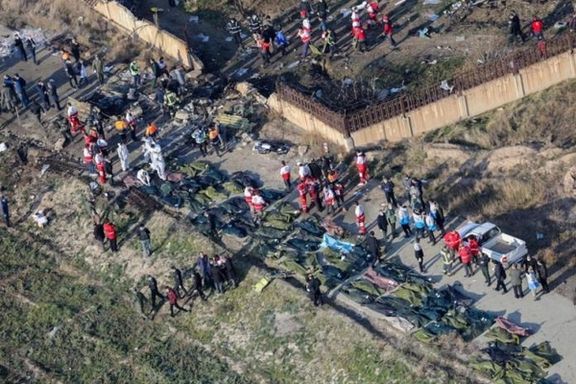
A court in Iran has issued sentences for 10 military personnel in connection with the shooting down of a Ukrainian passenger jet in 2020.

A court in Iran has issued sentences for 10 military personnel in connection with the shooting down of a Ukrainian passenger jet in 2020.
The judiciary’s Mizan Online website reported Sunday that a commander was sentenced to 10 years in prison, while nine others were sentenced to between one and three years.
The names of none of the senior military and government officials could be seen in the list, while families of victims demand to know which senior officers issued the order to fire at the plane.
“Examining this case has been one of the most important, sensitive and complex judicial processes in recent years,” added the website.
According to Mizan, the commander's action "was due to his ignorance of the situation and his misplaced belief that the discovered target was hostile."
The PS752 was shot down by two air-defense missiles fired by the IRGC as it took off from Tehran’s Imam Khomeini International Airport. Hours earlier, the IRGC had fired more than a dozen missiles at Iraqi bases hosting US troops in retaliation for the killing of its Quds Force Commander Qassem Soleimani in a US airstrike in Baghdad just five days earlier.
All 176 passengers and crew, including 63 Canadians as well as 82 Iranian citizens died in the disaster.
On December 28, 2022, the Coordination Group of countries affected by the tragic incident announced an important step in the pursuit of accountability in accordance with international law. Members of the group Britain, Canada, Sweden, and Ukraine urged Iran to agree to arbitration as Tehran has stonewalled over an independent investigation and proper compensation.
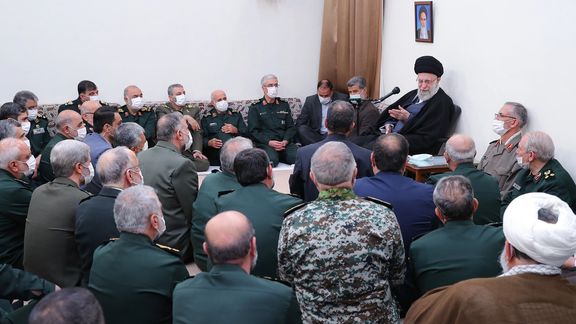
Iran’s ruler Ali Khamenei held a meeting with the country’s top military brass Sunday, reiterating his conspiratorial views about the “enemies” of Iran.
The Supreme Leader’s remarks were contradictory, as he told senior military commanders and officials that the “enemies are vincible” yet blamed such enemies for the main problems of the country.
"The enemies can be defeated with all their seemingly solid calculations and military might,” he said, without elaborating on his claims.
Despite widespread unrest -- ignited by the death of 22-year-old Mahsa Amini -- as well as the country’s grave economic and social crises, Khamenei voiced his satisfaction with what he called as years of continuous progress by the Iranian Armed Forces.
With an economy in crisis, a restive population and little to show after 34 years of presiding over an ever-unpopular regime, the military is the only institution he can praise, because they have made some advances in developing weapons.
Khamenei maintained that the armed forces should not focus their efforts on the actions of “weak elements” but should be prepared and vigilant against the behind-the-scene plotters. “Arrogant powers wage a conflict from behind the scenes wherever it benefits them,” using the Islamic Republic’s jargon for the US and Western powers.
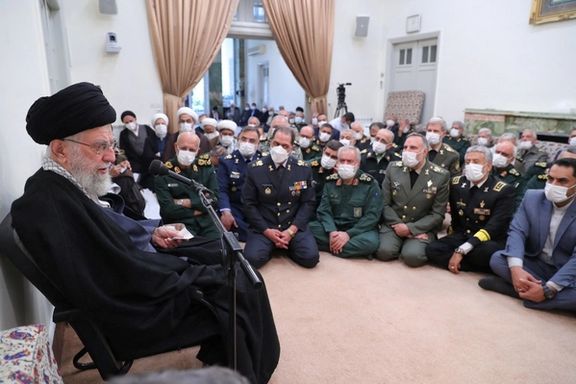
Paying no heed to the fast-paced dynamics of political change in the countries that Khamenei calls enemies of the Islamic Republic, he said, “Paying close attention to the enemy's five- or ten-year schemes is necessary, but mid- and long-term plots should be considered and monitored.”
This statement, more than anything else, revealed Khamenei’s fascination with conspiracy theories, imagining that the United States and European powers have long-term plans for decades to come.
Another conspiracy theory put forth by the octogenarian autocrat was why the US military’s involvement in Iraq and Afghanistan, describing them as “the two wars America started in the east and west of Iran about two decades ago.” He claimed, “Americans had interests in Iraq and Afghanistan, but their ultimate goal was the Islamic Iran, and due to the solid foundations of the Islamic Revolution, they failed in their adventures as well as their ultimate goal.”
While Khamenei called the United States feeble, he also said it was imperative not to underestimate the enemy. “At no stage should one ignore the enemy's machinations and plots.”
Since the beginning of the 'Women, Life, Liberty’ movement in Iran last September -- the boldest challenge the regime has ever faced – Khamenei has been blaming other countries for the popular uprising.
His strange denial of the nationwide revolt against the regime and his unfounded accusations are manifestations of his usual tactic of blaming others and refusing to take responsibility.
While more than 500 people have been killed by the regime's security forces since the start of the uprising, he has failed to utter a single sympathetic word about the victims.
In February, Khamenei for the first time admitted that there are disagreements between the people and the regime, nonetheless, his state of denial about dissent appears to continue as he repeated that sowing discord and creating differences is the "enemy's strategy."
Months of protests in the streets against the government have left a fragmented society in Iran where trust in the regime is at its lowest point.
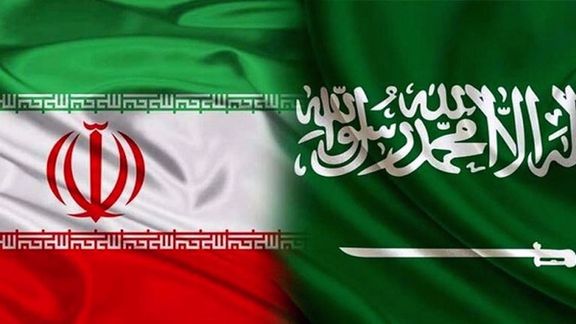
An IRGC-affiliated daily in Tehran says Riyadh is reducing tensions with the ‘resistance front’ and the move has made Washington and Israel angry.
‘Resistance front’ is Islamic Republic’s jargon for it allies and proxies in the region, including Palestinian militant groups.
Tasnim News Agency wrote Sunday that Saudi Arabia is rapidly restoring relations with the resistance axis “disappointing Israel which hoped to normalize relations with the kingdom”.
After reaching a deal with Tehran to reopen embassies, Saudis sent a delegation to Yemen to end the eight-year-long war, added the daily.
Referring to the invitation of the Syrian foreign minister and a senior Hamas delegation to Riyadh, Tasnim claimed that Saudis are opening a new chapter in their relations with the resistance axis.
After years of hostility that fueled conflicts across the Middle East, Tehran and Riyadh agreed to end their diplomatic rift and re-open embassies in a major deal facilitated by China last month.
Beijing's role in the breakthrough between Tehran and Riyadh shook up the dynamics in the Middle East, where the United States was for decades the main backer of Saudi Arabia.
Iran’s regime that is shunned by the West and isolated by US sanctions has heralded the revival of ties with Riyadh as a significant victory and a defeat for the United States in the region.
Saudi Arabia cut ties with Iran in 2016 after its embassy in Tehran was stormed by mob of hardliners supporters of the regime during a dispute between the two countries over Riyadh's execution of a Shiite Muslim cleric.
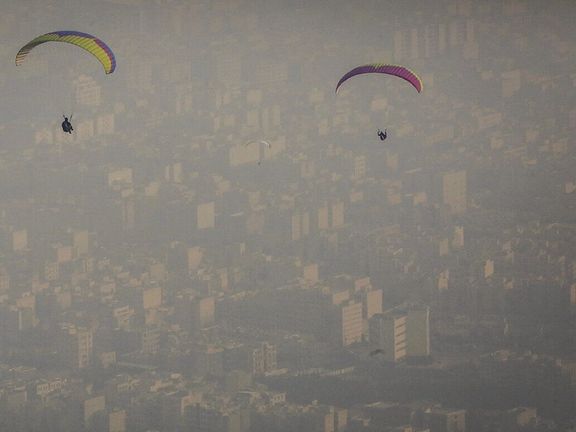
An expert at the Iranian parliament has warned that housing prices have increased ten-fold in the past five years.
Ali Farnam, an expert at the research center of the Iranian parliament said Sunday that housing starts declined between 2018 and 2022 as Iran was hit by US sanctions and its economy declined.
According to him, the increase in the price of construction materials, wages and the like all contributed to the price hike.
He further emphasized that house builders in Iran are not very interested in new construction because 80% of builders are now worried about selling what they already have, as people cannot afford new homes.
This comes as President Ebrahim Raisi had promised during his campaign to build one million housing units annually; a promise that was described as "impractical" by housing market experts and some politicians.
The average price of one square meter (11 sq feet) of housing in Tehran is around 600 million rials ($1,200), but the monthly minimum wage (without benefits) is around $120.
Donyaye Eghtesad (World of Economy) daily said in a report last week that in the first days of Iranian new year (starting March 21), the number of newly built units offered for sale increased slightly, but the housing market transactions did not return to normal.
Rents and home prices have climbed as much as inflation and the rise of the US dollar in recent months. Rents have reached a level that an ordinary worker must hold two or even three jobs just to afford basic housing.
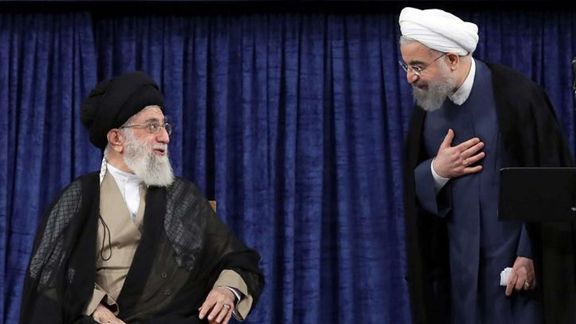
Former President Hassan Rouhani's Chief of Staff Mahmoud Vaezi says Rouhani is not planning to run in the upcoming parliamentary elections in March 2024.
Vaezi on Saturday dismissed reports about Rouhani's plan to run for the Majles as a lie, and added in an interview with Rouydad24 news website that the former President's political rivals published many false reports about him during his Presidency.
Earlier, IRGC-linked Tasnim News Agency had claimed in a report that Rouhani was determined to run in the next election. Tasnim further claimed that Rouhani would try to name some of his aides as candidates for the Majles election, and that Rouhani holds weekly meetings with his aides in preparation for the next election.
The hardliner website charged that Rouhani was Iran's most unpopular President and opined that the failure of his economic policies continue to plague the country.
Vaezi told Rouydad24 that the Tasnim report was about Rouhani's meeting with his former officials on the Iranian New Year and it had nothing to do with the elections. He said that at the meeting Rouhani called for a high-turnout election that would boost the Islamic Republic's legitimacy, but he did not say a word about his own inclination to take part as a candidate.
"The current government has spread so much false information about the Rouhani administration while it has not successful in running the affairs of the state during the 20 months it has been in office,” Vaezi argued. He continued, "Wherever there is a success, they attribute it to the new government and as soon as they encounter a problem, they blame the Rouhani administration."
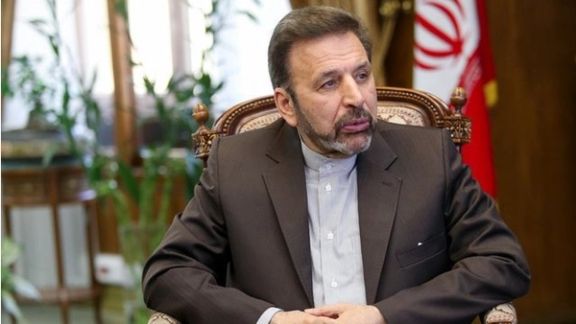
It is almost customary that Iranian governments blame their predecessors for their failures. For a long time, the government under President Rouhani blamed its predecessor, the Ahmadinejad government for the country's economic problems and diplomatic impasse with the United States and Europe.
Furthermore, throughout the past four decades Iranian presidents and Supreme Leader Ali Khamenei kept blaming the pre-revolution monarchy for all of the country's problems. Most recently, Khamenei blamed the last Pahlavi king Mohammad Reza Shah for Iran's problems in a speech on March 21 more than 44 years after the downfall of monarchy and establishment of the Islamic Republic.
Ahmadinejad has also resorted to blaming his predecessor, Mohammad Khatami when chaos and inefficiency plagued his eight years in office from 2005 to 2013.
It would be fair to say that Rouhani's failures were to a degree caused by the United States withdrawing from the nuclear deal and imposing crippling economic sanctions in 2018. His subsequent attempts to reach a deal with the Biden administration were stopped in June 2021, before the presidential elections.
During the Rouhani administration, Ahmadinejad was vocal against Rouhani and Khamenei and harshly criticized Khamenei and his regime in open letters. However, the media have been speculating recently that he might have been silenced by security forces during the past months.
Last week his absence at a memorial service for the father of his former aide was quite eye-catching. Persian media outside Iran said he has been told by one of Khamenei's top intelligence officers to keep silent and stay away from public events. It is hard to verify the report about Ahmadinejad's undeclared house arrest, while other reports were accompanied by photos that showed him on holiday in Iran's Caspian region.
By far, Rouhani is the only former president whose dignity appears to be respected by Khamenei although some of his hardliner opponents are said to be determined to demand nothing less than his execution, said reformist figure Ali Soufi.
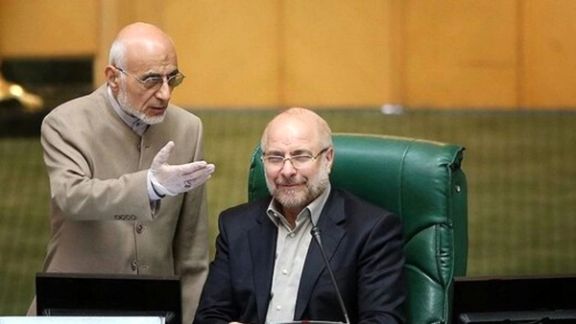
Iran’s parliament speaker helped oust the country’s chief banker in December because he resisted giving more money to the IRGC’s Quds extraterritorial force.
Iran International has obtained information that Speaker Mohammad-Bagher Ghalibaf and his aide Jamaleddin Aberoumand pushed former governor of the Central Bank of Iran (CBI), Ali Salehabadi, out of office to pave the way for stepping up financial support for proxy forces under the command of IRGC’s Quds force (Qods) Force -- a division responsible for extraterritorial military and clandestine operations.
Both Ghalibaf and Aberoumand were senior officers in the Revolutionary Guard. While Ghalibaf was once commander of IRGC’s air force, Aberoumand is an IRGC brigadier general who was a former deputy commander for the outfit’s coordination affairs.
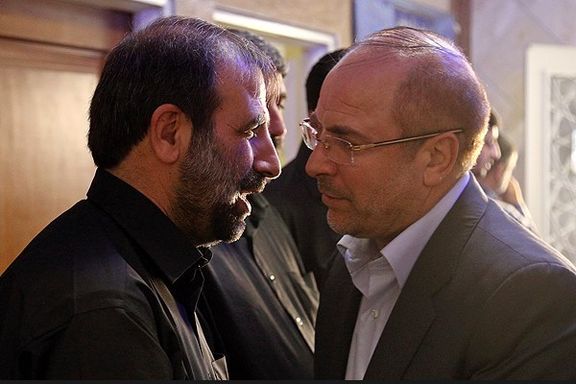
Aberoumand was also the head of IRGC Bonyad Cooperative, an entity also known as the Cooperative Foundation of the Revolutionary Guard and under US Treasury Department sanctions since December 2010. He was apparently in charge of paying the salaries of Quds Force militias.
According to Iran International’s investigative reporter Mojtaba Pourmohsen, the duo coordinated their efforts with at least four other officials. Head of the parliament’s presidium Amir-Ebrahim Rasouli as well as other conservative lawmakers Mohsen Dehnavi, Mostafa Mir-Salim, and Elias Naderan helped Ghalibaf in his plot.
Sources said that Salehabadi was resisting increased payments to Quds forces in the region, but after he was out of the picture, about $400 million was paid to the IRGC’s extraterritorial wing.
The push for more money for the foreign-based military forces was not a selfless act at all, as Iran International sources revealed in February that Ghalibaf and Aberoumand appropriated parts of the salaries that the IRGC meant to pay to its militias in countries such as in Syria and Yemen.
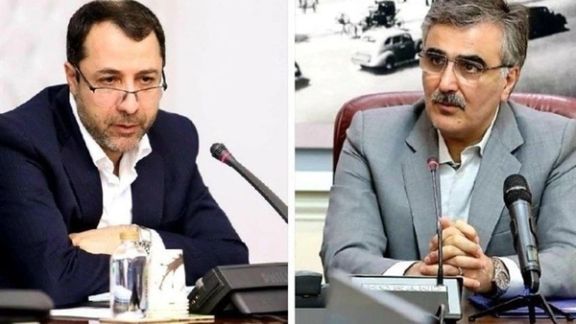
Aberoumand – and probably other IRGC commanders working with him – reported much higher salary expenses to the government and pocketed the difference. The IRGC source told Iran International that they overcharge the government to the tune of $500-1000 per month per fighter. The amount lost in the alleged corruption scheme runs into hundreds of millions of dollars a year.
Calls to remove Salehabadi mounted after the national currency rial hit new lows in December, but after he was removed the fall continued to a historic low of over 600,000 against the US dollar in February. Sending dollars abroad to finance Iran-backed militias reduces the supply of foreign currency in the country, and contributes to the devaluation of the rial against the dollar.
The Islamic Republic pays different amounts to its Quds forces and proxy militias in different countries of the region, with monthly payments in Syria and Iraq being higher than the forces in Yemen and way lower than the forces in Lebanon. According to unconfirmed reports, the Quds force has more than 200,000 forces across the Middle East although the number the IRGC is eager to admit is about half of that.
Zainebiyoun Brigade -- recruited mainly from Shia Pakistanis living in Iran – and Fatemiyoun Brigade – recruited from Afghan refugees in Iran and Afghanistan – were formed in 2014 to fight in Syria along with President Bashar al-Assad forces. These forces, along with Houthis in Yemen and Hezbollah forces in Lebanon are in fact employed and regularly paid by the IRGC.
A senior IRGC commander, who talked to Iran International on condition of anonymity, says the Fatemiyoun, Zainebiyoun and Houthis were paid a monthly salary of $700 in 2018 but the figure has been reduced in recent years. By 2022, the militiamen are paid about $100 to $200 per month. According to this information, Hezbollah fighters receive the highest salaries among the proxy forces, at about $1,300 per month, and the Yemeni Houthis receive $100 a month. Forces within the ranks of Lebanese Hezbollah recently received a $125 bonus for the fasting month of Ramadan.